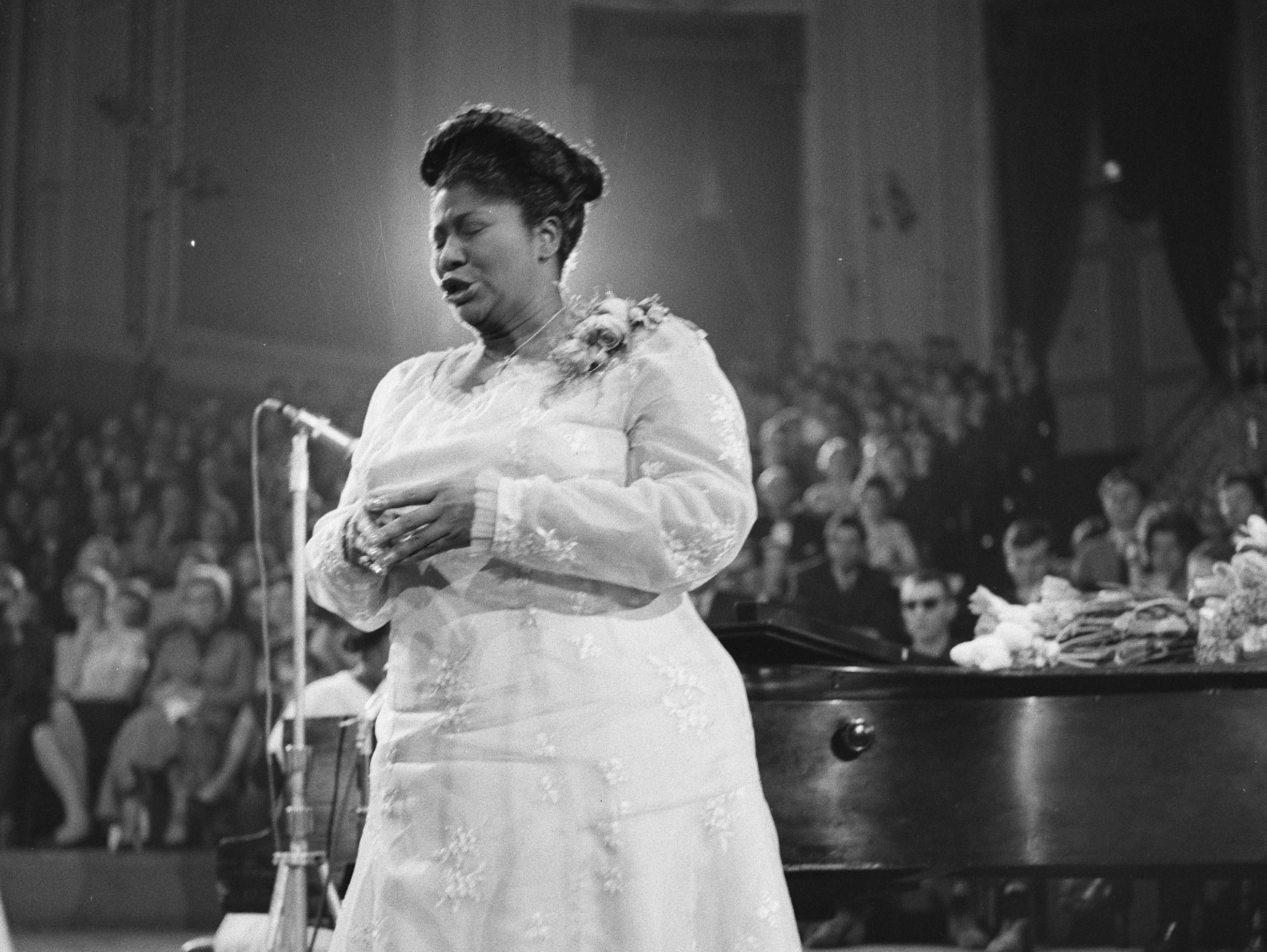
Photo of Mahalia Jackson by Dave Brinkman, via Wikimedia Commons
It may well be a truism to say that American music is African American music, but that doesn’t make it any less true. And when we reduce truths down to truisms they lose the granular detail that makes them interesting and relevant. Everyone knows, for example, that there would be no rock and roll without Robert Johnson at the crossroads and Little Richard in his sequined jacket and pompadour. But how many people know that without North Carolina-born Lesley Riddle, A.P. Carter’s onetime musical partner, folk and country music as we know it might not exist?
Likewise, Negro Spirituals and the black gospel tradition are legendary—birthing such towering figures as Aretha Franklin and Sam Cooke. But that history has often been turned into stereotype, an easy reference for down-home authenticity. Divorced from their roots, easy evocations of African American gospel glide over a complex tapestry of syncretism and synchronicity, innovation and preservation, and the building of local and national communities with a global scope and presence.
Black sacred music touches every part of U.S. history. To hear this history in granular detail, you need to hear NPR’s just-re-released audio series Wade in the Water: African American Sacred Music Traditions. First released in 1994 by NPR and the Smithsonian, the 26-part documentary details “the history of American gospel music and its impact on soul, jazz and R&B.” The series begins with a conceptual overview and carries us all the way through to the contemporary gospel scene.
Along the way, we learn about regional scenes, the growth and worldwide popularity of the Jubilee singers who so inspired W.E.B. Du Bois, the lined hymn and shaped-note traditions, and the use of gospel as a documentary medium itself, chronicling the sinking of the Titanic, the Depression, World Wars I and II, and more. Sacred music supported Civil Rights struggles, and movement leaders like Fannie Lou Hamer sang as they marched and organized, a powerful sound folk singers like Pete Seeger and Bob Dylan picked up and emulated.
Talking about music can only take us so far. Wade in the Water succeeded by keeping music at the center, even releasing a four-CD set, with extensive liner notes. This time around, the digital release comes with Spotify playlists like the one above in which you can hear a sampling of songs from the series. Here you’ll find the usual crossover gospel greats—Aretha, the Staple Singers, Billy Preston, Mahalia Jackson, BeBe and Cece Winans. You’ll also hear unknown community groups like a Demopolis, Alabama Congregation singing “Come and Go with Me” and the Gatling Funeral Home singing “Gatling Devotional.”
The series was researched, produced, and presented by Bernice Johnson Reagon, who is both a living example and a historian of the African American musical tradition. A founder of the SNCC Freedom Singers during the Civil Rights movement, she went on to found and direct Sweet Honey in the Rock, who appear in Wade in the Water and the playlist above. Reagon earned her Ph.D. from Howard University and published several scholarly books on the history she explores in the documentary series. Learn more about her (and hear more of her music) here, and hear all 26 episodes of Wade in the Water at NPR.
Related Content:
African-American History: Modern Freedom Struggle (A Free Course from Stanford)
Josh Jones is a writer and musician based in Durham, NC. Follow him at @jdmagness


Leave a Reply